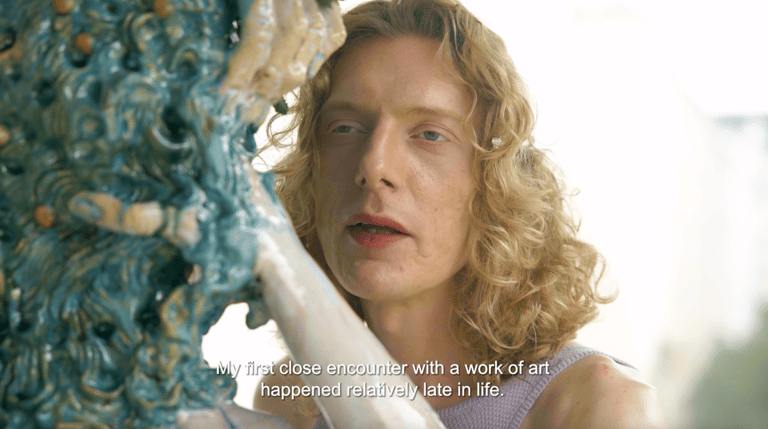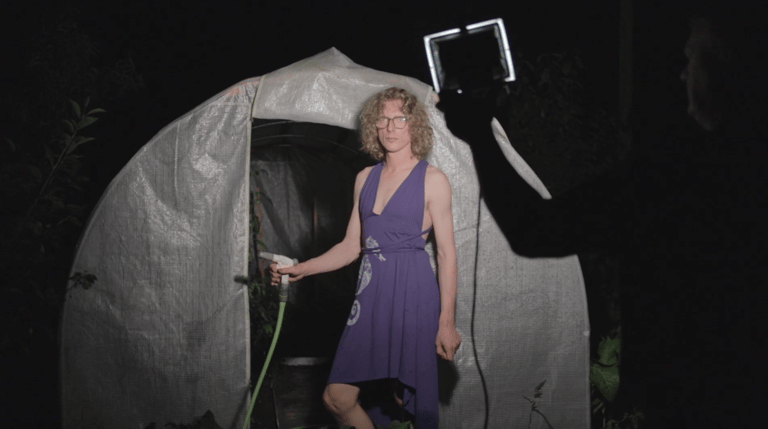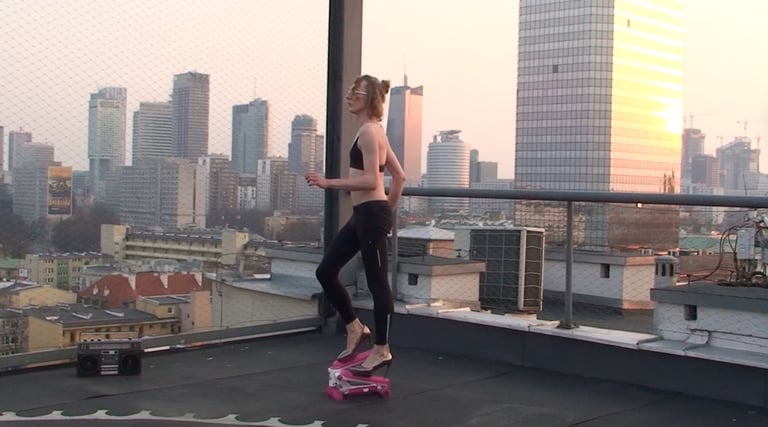'Filipka in conversation with Filipka (by Paweł Althamer)'
8:10, 2025




The video presents a dialogue between the artist and a sculptural portrait made by Paweł Althamer, with whom Filipka has long collaborated as an assistant. The portrait depicts her as a mythological figure emerging from sea foam, with the foam symbolizing the fluidity of sexual identity. Filmed at the Foksal Gallery Foundation, the piece shows Filipka interviewing herself, engaging in a conversation with her own artistic incarnation. Blending humor with reflection, she raises philosophical questions about emancipation, visibility, and queer history.
'The Reflection I Can't Escape'
30:18, 2024




This work documents a dialogue between the artist and her conservative father, set in his metal workshop, where she frames his tinkering as a form of artistic practice. Through the format of an artist interview, she explores themes of working-class background, class consciousness, and their relationship to sexual emancipation. The film opens with the father performing physical tasks such as moving coal or laying bricks, later echoed by Filipka, who “queers” these gestures by repeating them in a dress. Filmed in the very space her father was building, the work symbolically reflects their shared act of construction despite ideological differences. It was presented in We Want the Whole Life. Feminisms in Polish Art at the State Gallery of Art in Sopot—the largest survey of feminist art in Poland’s history.
'Work out with Filipka'
4:00 , 2020




Set against the silent skyscrapers of the coronavirus pandemic, this video shows Filipka Rutkowska performing fitness exercises to maintain a healthy body during lockdown. Wearing sportswear and high heels, she trains on a pink stepper atop the Institute of the Avant-Garde in Warsaw—the former studio of Edward Krasiński and Henryk Stażewski. Her queer, semi-revealed figure contrasts with the empty office towers, underscoring the fragility of both bodies and social systems. With humor, the work reflects on balancing in uncertain times while suggesting that stability remains possible even amid insecurity.
The video was presented as part of the New Horizons Film Festival in Wrocław.
'To You, Mommy'
4:00, 2021




This video, filmed in an abandoned bar during the pandemic, reflects on the sudden erasure of queer spaces once central to connection and community. In the empty venue, Filipka performs a drag act as bartender, paying homage to the lip-sync tradition deeply rooted in queer culture. She performs Violetta Villas’s song To You, Mummy with intimacy and tenderness, dressed in a way that partly reveals her body and heightens the sense of vulnerability. Her trembling legs and visible breath in the cold air underscore the fragility of both bodies and the systems that sustained queer life. Commissioned by Boiler Room TV, the work was presented by Mohamed Al-Musibli in the video program at Fondation Pernod Ricard in Paris.